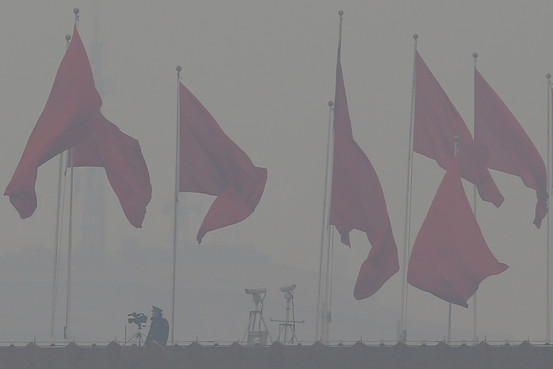Home -> News -> Media -> China Saves Its Ammo in War on the S-Word
China Saves Its Ammo in War on the S-Word

China for another year outlined its commitment to fight pollution, enacting new limits and even using the word “smog” for the first time.
But in the area that matters most – spending – Beijing appears to be falling short.
The work report released on Wednesday by the Ministry of Finance said spending on environmental protection and energy conservation last year fell 9.7% to 180 billion yuan ($29.3 billion) compared with 2012. That amounted to only about 86% of what was budgeted for those subjects last year.
In 2012, spending on those areas exceeded its budget, and grew 23% to about 200 billion yuan. By comparison, China’s military spent about 720 billion yuan last year, according to the government.
Nonetheless, Chinese Premier Li Keqiang pledged an all-out battle against pollution. The work report released on Wednesday also called for increasing spending by 17% from what was spent to about 210 billion yuan.
“We will declare war against pollution and fight it with the same determination we battled poverty,” he told delegates during his address to delegates at the Great Hall of the People.
The spending drop contrasts with some of the rhetoric from Chinese leaders in their reports on Wednesday ahead of the start of the once-a-year National People’s Congress. In a separate report, China’s top economic-planning agency said it would work to meet its emission reduction targets and introduce programs where polluters pay for the pollution they cause and are accountable for environmental damage.
“We will intensify the implementation of the action plan for preventing and controlling air pollution, and strengthen coordination of air-pollution prevention and control efforts with the focus on [heavy pollution areas of] the Beijing-Tianjin-Hebei region, the Yangtze River Delta and the Pearl River Delta,” it said.
Still, there’s that pesky drop in environmental spending. According to the document, the fall in environment spending resulted from the government allowing some subsidies related to energy-efficient products to expire. Earlier this year, the government allowed a subsidy for energy-efficient home appliances to expire.
The drop comes as authorities this year decided to use a word that didn’t make it into previous work reports: smog.
“The problems of consumption of resources and environmental pollution are prominent,” the NDRC said. “The tasks of conserving energy and reducing emissions are arduous; in particular, smog frequently engulfs large areas of China and seriously affects people’s lives and health.”
The S-word has been notably absent from previous NDRC reports, even when it was outlining efforts to address the problem. In last year’s work report, the commission said it would “intensify prevention and control of air pollution in urban areas” and “step up efforts” to monitor tiny, hazardous particles known as PM2.5, which measure smaller than 2.5 micrometers in diameter and pose a particular health threat.
The NDRC also pledged to aggressively cut emissions of nitrogen oxide, an indicator of air pollution generated predominantly by coal-fired power plants and oil refineries. The commission said it would cut NOx emissions by 5% in 2014 from 2013 levels, marking the first time the NDRC gave an annual target. China has a goal of reducing NOx emissions by 10% by 2015 from 2010 levels. However, NOx emissions rose 2.8% between 2010 and 2012 due to the slow pace of industrial reform, the official Xinhua news agency said last year, underscoring the challenges facing the nation’s leaders in restructuring the industrial-based economy.
The “smog” language may be a nod to the recent spate of days in which major cities such as Beijing and Shanghai experienced some of the longest and most intense episodes of air pollution in recent memory. China Real Time will keep its eyes peeled to see whether next year’s report uses the word “airpocalypse.”
- .U.S. Treasury looks to hold more cash to deal with future crises
- .Yum, McDonald's in Shanghai food safety investigation
- .Yellen defends loose Fed policy, says job market still too weak
- .Carl Icahn says 'time to be cautious' on U.S. stocks
- .Samsung Electronics says second quarter profit likely down 24.5 percent; worst in two years
- .U.S. jobs data seen reinforcing strong growth outlook
- .Asia stocks up on buoyant Wall Street, oil near highs

